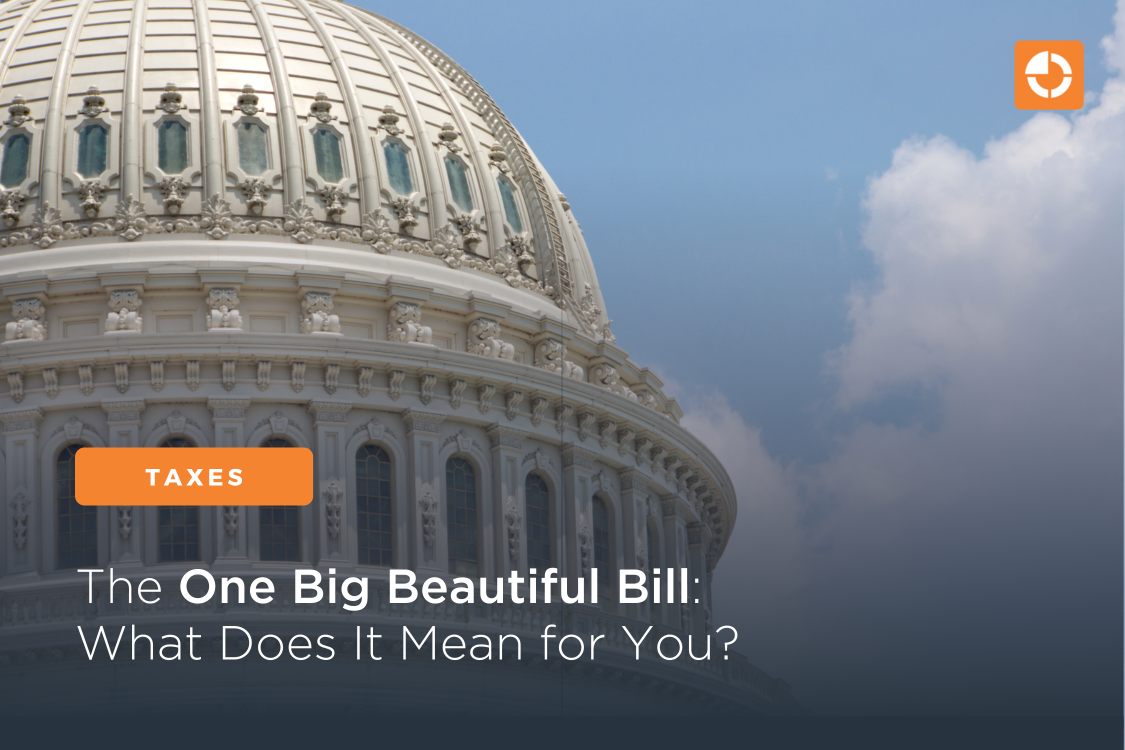The One Big Beautiful Bill: What Does It Mean for You?

On July 4, 2025, President Donald Trump signed the One Big Beautiful Bill Act (OBBBA) into law. The legislation’s path through Congress was marked by extensive debate and political theater, and the White House signing ceremony carried its own share of spectacle, including a B-2 stealth bomber flyover in honor of Independence Day.
Now that the celebration has concluded and the spotlight has shifted away, the real question is: what does this sweeping legislation actually include? At nearly 900 pages, the OBBBA introduces new provisions, modifies existing rules, and expands regulations that touch many aspects of American life.
But how will it affect you and your financial future? Let’s break down what you need to know about the One Big Beautiful Bill Act. Unless otherwise noted, all details provided are drawn directly from the law itself.
Lots of Changes to Your Taxes
The vast majority of this big, beautiful bill has to deal with the wonderful world of taxes (we say that sarcastically). Changes to the tax laws include:
- Making the 2017 Trump tax cuts permanent.
- Raising the child tax credit to $2,200.
- Adding tax deductions on tips and overtime (up to $25,000 and $12,500 a year, respectively).
- Restores a rule that allows premiums from private mortgage insurance (PMI) to be deducted like mortgage interest.
- Ending the $7,500 electric vehicle tax credit as well as the tax credits for energy-efficient home improvements like solar panels.
Changes to Medicare
Medicare, the government-run health insurance program for people ages 65 and older, will also see changes under the OBBBA, including:
- Expansion of telehealth services for easier access to remote care.
- New limits on coverage for certain individuals.
Changes to Savings Accounts
Saving money is always a plus, but the OBBBA makes some notable adjustments that could affect how you save for your children’s future, health care, and college.
Trump Accounts
One of the bill’s most talked about provisions is the creation of Trump Accounts, a new type of tax-advantaged savings account. Parents of children under 18 can deposit up to $5,000 annually, plus an additional $2,500 from an employer. Children born between January 1, 2025, and December 31, 2028, will also receive a $1,000 bonus contribution from the government.
These accounts grow similarly to retirement accounts. Contributions can continue until the child turns 18, after which the account follows traditional IRA rules. Withdrawals are taxes as income and carry a 10% penalty before age 59 1/2 unless used for approved expenses such as education or a first home purchase.
Details are still being finalized, and Trump Accounts will not be available until next year. In the meantime, families may consider existing options such as ESAs and 529 Plans.
529 Accounts
The OBBBA also updates the long-standing 529 education savings plan. These state-run investment accounts allow you to save for qualified education expenses, grow tax-free, and withdraw tax-free.
Key updates include:
- Expanded eligible expenses, such as tutoring, books, online resources, and educational therapy for students with disabilities.
- Post-secondary use of expanded to trade schools, workforce training, and certificate programs.
These changes create more flexibility, especially for families not pursuing a tradition four-year college path. Still, make sure you’re financially ready before contributing (i.e., debt-free, emergency fund in place, and investing 15% of your income for retirement).
Health Savings Accounts
The law also broadens access to Health Savings Accounts (HSAs). Beginning January 2026, individual bronze and catastrophic plans from the Affordable Care Act exchanges will qualify as high-deductible health plans (HDHPs), allowing more people to open HSAs.
This expansion increases access but doesn’t change the general rules about what qualifies as an HDHP.
Changes to College Loans and Grants
While taxes dominate much of the bill, student loans and grants also get significant attention.
Student Loans
The OBBBA simplifies repayment options for new borrowers (after July 1, 2025):
- A standard repayment plan with fixed monthly payments that stretch from 10 to 25 years, depending on how much you owe.
- A new income-driven plan called the Repayment Assistance Plan, which sets payments at 1-10% of income and forgives the remaining balance after 30 years.
Notably, the Trump administration has made it clear that large-scale loan forgiveness is off the table.
Direct PLUS Loans also change:
- Parent PLUS: Starting July 1, 2026, borrowing is capped at $65,000 per student (lifetime) and $20,000 per year.
- Grad PLUS: Closed to new borrowers after July 1, 2026; existing loans will be subject to borrowing limits.
The bottom line: student loans will be harder to rely on, underscoring the importance of cash-flowing college with scholarships, grants, part-tine work, and savings.
Grants
The OBBBA makes FAFSA and Pell Grants more accessible and better aligned with workforce needs:
- FAFSA: As of July 1, 2026, family farms and small businesses no longer count against grant eligibility.
- Pell Grants: Beginning the same year, Pell funds can be used for non-degree programs like trade schools and job training. Grants also won’t be awarded if tuition is already fully covered by other aid.
Other Key Changes
Like we said before, the One Big Beautiful Bill Act covers a lot of changes in a lot of areas. We’ve just highlighted the major points that are certain to affect your personal finances. But there are lots of other changes that could impact you, someone you know, and the whole country.
- Proof of work will now be required for people to receive Medicaid and SNAP benefits (exceptions apply).
- Stricter qualifications for Affordable Care Act coverage.
- America’s debt ceiling is being raised by $5 trillion.
- According to the Congressional Budget Office (CBO), the OBBBA adds $3 trillion to the national debt over the next ten years.
Get Your House in Order
Like most government legislation, the One Big Beautiful Bill Act is a mixed bag. What really matters is your personal financial discipline. No law or politician can fix your money situation for you.
At Petersen Hastings, we believe financial confidence starts with a clear plan that’s built around your goals, not political headlines. Our fiduciary advisors are here to help you navigate changes, stay focused on what you can control, and build lasting security for your future. Connect with an advisor today and take the next step on your invested journey.
https://www.ramseysolutions.com/saving/one-big-beautiful-bill
The contents of this article is provided by Ramsey Solutions and features general guidelines about investing topics. Your situation may be unique. If you have questions, connect with a SmartVestor Pro. Ramsey Solutions is a paid, non-client promoter of participating Pros.



